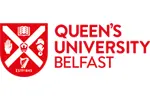We're moving! This site will be relocating to goingto.university in 2026. Please update your bookmarks to the new address.


| The award | How you will study | Study duration | Course start | Domestic course fees | International course fees |
|---|---|---|---|---|---|
| PG Dip | Full-time, Part-time | 1 - 2 year | September | - | GBP 12133 per year |
The PgDip Politics is a broad-based programme, offering students a good grounding in the discipline of political science. This Pg Dip gives students the opportunity to engage with core theories, concepts, issues and debates in politics. Students may tailor their programme to their own interests, by their choice of optional modules, from Irish politics and European politics to political theory and comparative politics, which build on the strengths of the school's research. The PgDip offers a unique perspective on multi-level politics in Europe, at the regional, national and European levels and on the policy issues of the time, including energy transitions and climate change, ethnic conflict, gender, and democratic legitimacy. The aim of the PgDip in Politics is to deepen students' understanding of important contemporary issues in political studies through the enhancement of students' analytical skills, research and writing talent, and capacity for utilising theoretical approaches. These are all important transferrable skills, highly valued in the job market. The programme is of particular interest to those wishing to know more about Irish politics (North and South), European politics, territorial politics, political conflict, and political theory. Belfast is a globally significant location and Politics is about conflict, debate and the contest of ideas, making Belfast, where such things are part of everyday reality, an ideal place to study the subject. Northern Ireland is viewed as a model of conflict resolution and peace building across the world. Students can directly benefit from the School and University's wider expertise in political theory, Irish and Northern Irish politics, gender and environmental politics, security studies, border studies, terrorism and political violence. Students have the opportunity to visit Brussels (part-funded by the School) including the European Parliament, European Commission, Human Rights NGOs, NATO etc.
Contact Queen's University Belfast to find course entry requirements.
Below are some suggested courses at other providers that you may also be interested in:
Graduate Diploma of Engineering (Civil: Structural) Graduate Diploma
Engineering Institute of Technology
Find out moreConservation of Books and Library Materials MA, Postgraduate Diploma, Graduate Diploma
West Dean College
Find out moreIf you do not meet the entry requirements for this course then consider one of these postgraduate preparation courses from another institution:
Graduate Diploma of Engineering (Civil: Structural)
Engineering Institute of Technology
Find out moreThere are 462 other courses listed from Queen's University Belfast. A selection of these are displayed below:
Join the StudyLink email list and never miss a chance to turn your study abroad dreams into reality!
